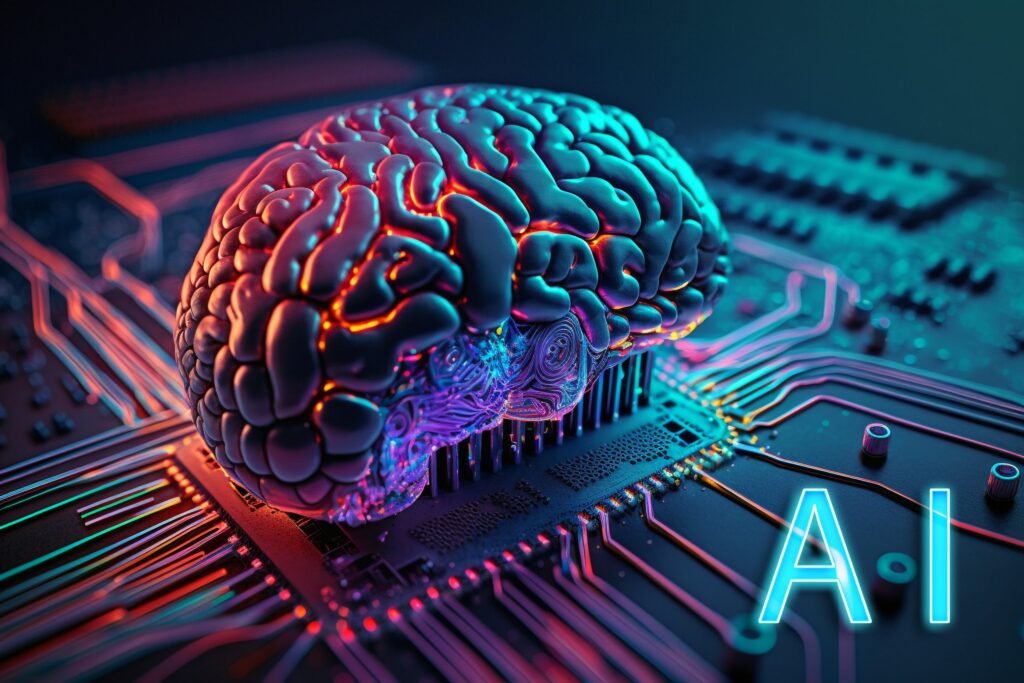Introduction
Artificial Intelligence (AI) continues to shape our world in profound ways, with 2024 marking a year of groundbreaking advancements and transformative applications. From revolutionizing industries like healthcare, education, and transportation to addressing global challenges like climate change, artificial intelligence is pushing the boundaries of what’s possible. However, these advancements come with critical ethical considerations, including issues of privacy, bias, and accountability. As we delve into the breakthroughs and challenges of Artificial intelligence in 2024, it’s clear that this powerful technology holds immense potential to improve lives while demanding careful oversight to ensure its responsible use.

1 Major AI Breakthroughs of 2024: Transforming Technology
AI has achieved remarkable progress in 2024, with innovations in machine learning, deep learning algorithms, and real-world applications. From new AI-driven tools to smarter systems, these breakthroughs are reshaping industries and pushing technological boundaries.
2 AI in Healthcare: Revolutionizing Diagnosis and Treatment
Artificial Intelligence is transforming healthcare by enabling early disease detection, personalizing treatment plans, and improving patient care. From artificial intelligence driven diagnostic tools to robotic surgery, these advancements are enhancing accuracy and efficiency in the medical field.
3 The Role of AI in Climate Change Solutions
Artificial Intelligence is playing a critical role in addressing climate change by analyzing environmental data, optimizing renewable energy sources, and predicting natural disasters. These applications help governments and organizations create sustainable strategies to combat global warming.
4 Advancements in Natural Language Processing and Chatbots
Natural Language Processing (NLP) technologies have become more sophisticated, enabling chatbots and virtual assistants to understand and respond with human-like accuracy. This enhances user experiences in customer service, education, and content creation.
5 AI in Education: Personalized Learning Experiences
AI-powered platforms are revolutionizing education by providing tailored learning experiences. These systems adapt to individual student needs, helping educators deliver more effective and engaging lessons while improving outcomes for learners.
6 Autonomous Systems: Progress in Self-Driving Vehicles and Robotics
Autonomous systems, including self-driving cars and advanced robotics, are making significant strides. These innovations are revolutionizing industries like transportation, manufacturing, and logistics by improving efficiency and safety.
7 AI and Creative Industries: Redefining Art, Music, and Media
Artificial intelligence is redefining creativity, generating original artwork, composing music, and editing media content. These tools are assisting creators while sparking debates about the role of human originality in the arts.
8 Ethical Challenges of AI: Bias, Privacy, and Accountability
Artificial intelligence raises important ethical concerns, such as algorithmic bias, data privacy, and the lack of transparency. This section explores the challenges of ensuring that AI systems are fair, reliable, and accountable to their users.
9 The Debate Around AI Regulation and Governance
As AI technologies evolve, debates surrounding their regulation intensify. Policymakers and experts are grappling with questions about how to govern AI responsibly while encouraging innovation.
10 AI and the Workforce: Navigating Automation and Job Displacement
AI is automating routine tasks, transforming industries and workflows. This section examines how workers and organizations can adapt, highlighting the potential for reskilling and upskilling to meet the demands of the AI-driven economy.
11 AI’s Role in Enhancing Cybersecurity
AI is strengthening cybersecurity by detecting threats, preventing breaches, and analyzing vulnerabilities. These tools are vital in a digital world where cyberattacks are becoming increasingly sophisticated.
12 Building Trust in AI: Transparency and Explain ability
To foster trust, AI systems must be transparent and explainable. This section explores efforts to make AI algorithms understandable, ensuring users can rely on their outcomes.
13 The Impact of AI on Global Economies and Societies
AI is driving economic growth, transforming industries, and reshaping global labor markets. While offering immense benefits, these changes also pose challenges, such as widening inequalities and regional disparities.
14 The Future of Human-AI Collaboration
Human-AI collaboration is expanding, with AI tools assisting in decision-making, creativity, and complex problem-solving. This section highlights the potential for synergy between humans and machines to achieve groundbreaking advancements.
15 Balancing Innovation and Ethics in the AI Revolution
Striking a balance between rapid AI innovation and ethical responsibility is essential. This section discusses the importance of maintaining human values, fostering accountability, and ensuring equitable access to AI technologies.
Conclusion
The advancements in AI during 2024 highlight the extraordinary potential of this technology to revolutionize industries, solve global problems, and enhance everyday life. Yet, these opportunities come with significant responsibilities, including addressing ethical concerns and ensuring equitable access. As we continue to innovate, it’s crucial to prioritize transparency, accountability, and inclusivity in AI development. By striking a balance between progress and ethics, we can harness the transformative power of AI to build a future that benefits all of humanity.

